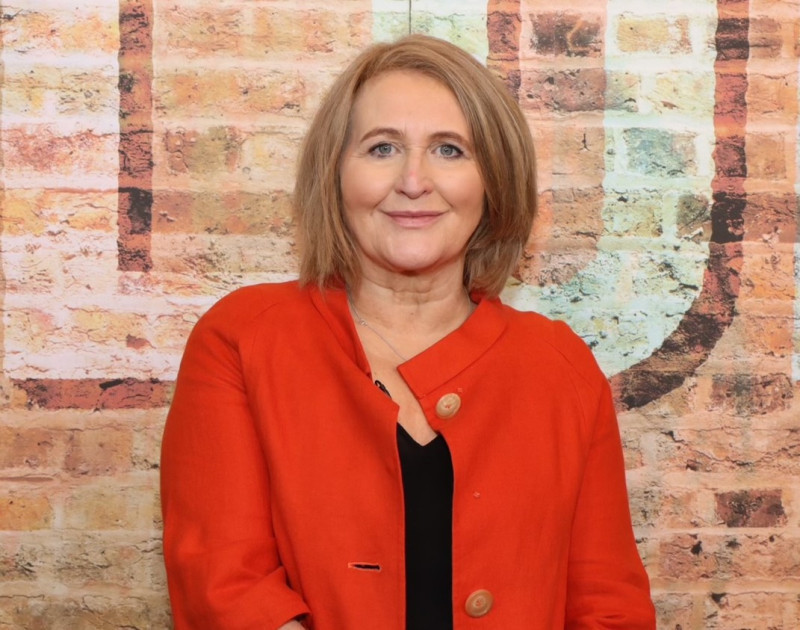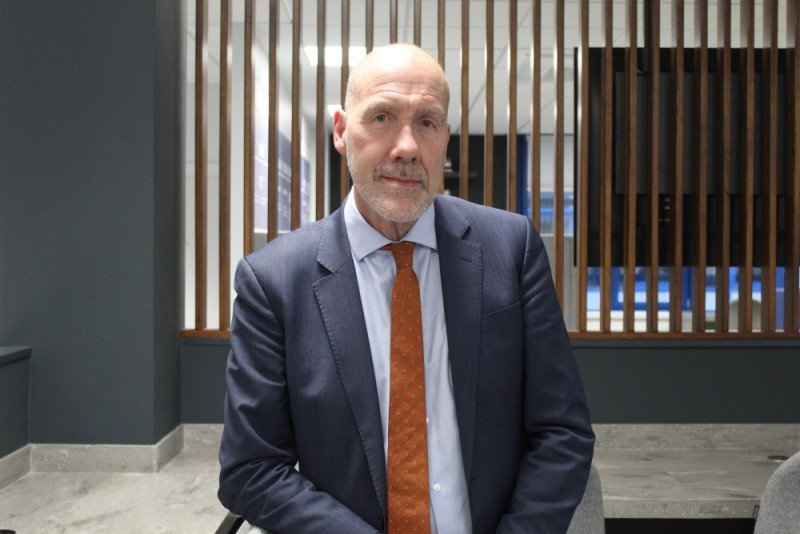In the News
Prime Minister Rishi Sunak’s announcement at the start of this year that the government will set an ambition for all young people to study maths until they are 18 sparked a heated debate over the merits of such a policy.
The Times Education Commission’s much-lauded report from last summer featured a YouGov poll that found 51 per cent of respondents were in favour of children being required to study maths and English to 18.
Ofsted chief inspector Amanda Spielman told the Commons Education Select Committee last November, before the PM made his announcement, that: “I applaud people being expected to study maths to 18.”
Lack of teachers poses challenge to policy
Yet the prime minister attracted some high-profile criticism for his ambition. Mission: Impossible actor Simon Pegg published a video on his Instagram saying: “What about the kids that don't want to do maths? I hated maths. I dropped maths as soon as I could and I’ve never needed it other than the skillset I acquired at the age of 12.”
Former Countdown presenter Carol Vorderman, who was previously asked by the Conservatives to lead a review into maths teaching, said “the system is not working” to make maths to 18 practical.
“I support teachers but in primary school most teachers, almost all, gave up maths at 16,” Vorderman highlighted.
The principal of Newham Sixth Form College, Mandeep Gill, wrote for local newspaper The Newham Recorder: “Forcing students to do something they don’t want to do doesn’t work and those of us who have children know this is especially true of teenagers.”
The joint general secretary of the National Education Union Kevin Courtney called Sunak’s announcement “baffling in its failure to notice the obstacles to his ambitions: Schools and colleges lack the teachers to deliver it".
The lack of existing teachers to support this ambition has been cited by several critics as a significant barrier to be overcome.
What about resits?
What is also worth considering is that a great many young people already study maths past the age of 16. There were 89,605 A-level mathematics entries last summer, according to Ofqual. There were an additional 134,887 people aged 17 or over resitting GCSE maths last summer.
Former Children’s Commissioner Anne Longfield (whom we interviewed for this edition of The Mark) told the PoliticsHome blog site following Sunak’s announcement that, “we need to get children to the point where at 16 more are able to get good results so they don’t have to go on to resits”.
Interview
This month, we spoke with former Children's Commissioner and chair of the Commission on Young Lives Anne Longfield about the problems with maths tuition and the challenges with extending it to 18.

Do you believe it would be beneficial to have young people study maths up to 18?
We all want young people to be numerate and have the skills they need to enter the workforce with confidence and capability. The focus on application is crucial, employers say they need young people who have the practical skills the economy needs and which are often missing at the moment.
Too often maths has been a concept – taught as an academic exercise with little obvious relevance to the world of work. There are big issues lying behind why children do not progress in maths and ministers must go beyond making pupils jump through hoops and instead look at what children and business leaders want when it comes to developing maths skills.
Too many of the children taking maths beyond 16 are engaged in round upon round of GCSE retakes. We need to get to the point where more young people are able to get good GCSE results in maths the first time around, so they don’t have to go on to re-sits.
What do you believe are the key challenges to delivering on this ambition?
The shortage of maths teachers and the well-known difficulties with retention are the core obstacles to achieving these ambitions.
But it goes wider than this. Twenty per cent of young people currently leave school without the basic qualifications they need to progress into training or an apprenticeship. We should not accept this level of failure by our system. It should be a national scandal that after over a decade of education so many young people are leaving without any qualifications at all.
Too often maths has been taught as an academic exercise with little obvious relevance to the world of work
We should be inspired by the many schools that do provide young people with the support they need to help them to succeed in their education and we should commit to providing that support to young people in every school.
Following the public outcry from high-profile figures such as Simon Pegg and Carol Vorderman, why do you think the public has developed such an aversion to studying maths?
The averse public reaction might reflect the dry way that maths was presented to children in the past. I think some adults don’t have fond memories of learning maths at school.
We need to make maths a more engaging and attractive proposition and link its relevance and importance to many of the rewarding jobs and opportunities that having good maths qualifications can bring.
What form should this extra tuition take? Should 16-18s study maths as a separate subject, or should it be a clearly defined module as part of their other subjects, for example?
We need to be ambitious for our children and maths is a central and important part of a modern education system. But it needs to be seen as a core part of a wider package of art, literature, music, and creative subjects which offer young people the breadth of skills and knowledge they need to progress into further and higher education and employment.
With an increasingly narrow curriculum, we are not giving our young people the skill base they need to succeed in life or the workplace. A serious consideration of educational opportunities for all children are needed, but it needs to go much beyond the single issue of maths.
Opinion
Association of School and College Leaders general secretary Geoff Barton discusses how a lack of teachers could undo maths to 18 and why there could be a better way of equipping young people with essential maths skills.

Rishi Sunak’s plan for young people to study maths to 18 came rather out of the blue. The timing was certainly curious, with it being the only real policy announced in his first major speech of the year, delivered while there is huge unrest across the public sector. The second reason why the policy was surprising was because there had been no discussion whatsoever with school and college leaders. Thirdly, as the Prime Minister would have soon found out had he consulted the people tasked with delivering this policy in the classroom, it is completely unworkable.
Maths is compulsory up to the age of 16, as well as being the most popular A-level, and there is already a shortage of teachers. One in eight maths lessons are taught by someone who is not qualified in the subject, and the government has missed its initial teacher training target for maths teachers every year since 2012/13. How can the teaching of maths be extended in these circumstances? Thus far the Prime Minister has not shown his working, probably because the numbers just don’t add up.
One third of pupils do not achieve at least a grade 4 standard pass in GCSE maths and English at the end of secondary school and have their future prospects damaged as a result
This policy is unlikely to ever amount to anything, but there is an important debate to be had about how best to equip young people with the skills they need to thrive once they leave education. One third of pupils do not achieve at least a grade 4 standard pass in GCSE maths and English at the end of secondary school and have their future prospects damaged as a result. The exam system uses a mechanism called ‘comparable outcomes’ to distribute grades so that they are broadly consistent from one year to the next. There is a system – the National Reference Test – designed to allow some movement if standards rise or fall. But to all intents and purpose this ‘forgotten third’ is baked into the system.
Pupils who fall below this bar have to retake either GCSEs or functional skills qualifications, with many again not achieving at least a grade 4 in retakes – a deeply demoralising process which arguably further damages their confidence.
ASCL has proposed a solution – a passport-style qualification to replace GCSE maths (and English), taken at various levels between age 14 and 19 when the student is ready, with the aim of building competence and confidence. We believe this would much better serve all young people than the current cliff-edge of a high-stakes terminal exam at the end of secondary school. Alongside this, the government must do more to improve teacher pay and conditions so that schools and colleges are able to recruit the maths teachers they need.
Politicians need to listen to those working in education rather than coming up with policies based solely on their own experiences. While Rishi Sunak’s concerns about a lack of maths skills are not entirely misguided, his proposal doesn’t get to grips with the issue. Rather than bolting on extra maths study, we need a reform of the exam system so that it is fit for the 21st century and a strategy for recruiting and retaining more teachers.



